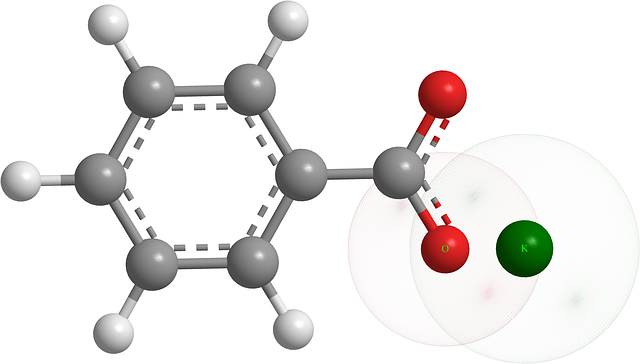Electrolytes and Fitness

Replacing Essential Minerals After Your Sweaty Workout Does More Than Just Make You Feel Refreshed
You lose much more than just water during a sweaty workout.
Along with H2o, you sweat out minerals including sodium, magnesium, potassium, calcium, and chloride. These are key chemicals for a healthy body. They support essential functions including nerve and muscle function, blood acidity levels and the chemical reactions inside cells.
There are two main ways to replace electrolytes. You can supplement them after your workout, often in drink form. You can also adjust your diet to get extra essential minerals. I do both, and my recovery and overall health has never been better.
This guide is an overview of what electrolytes are and exactly why you should supplement them.
What are the Main Electrolytes?
Here are the big-5 electrolytes and their key functions in the body:
- Sodium: You might know this better simply as salt. It has an important role in fluid regulation and hydration. In addition, proper nerve function and the contraction of muscles requires sodium.
- Magnesium: This mineral has multiple roles on health and is essential for high quality sleep. In addition to supporting muscle and nerve functionality, magnesium is involved in bone health and the cellular energy production cycle.
- Calcium: Many people know that strong teeth and bones require calcium. It has additional roles, being essential for muscle contraction (alongside the other Electrolytes), and for blood clotting too.
- Chloride: Not as well known as the other electrolytes though the most abundant by volume, chloride is essential for balancing the fluid levels throughout the body. It also pays a vital role in digestion, as without it the production of hydrochloric acid is affected. This study calls it ‘queen of the electrolytes;.
- Potassium: Like the electrolytes above, potassium is involved in nerve function and muscle contractions. It also has vital roles in maintaining a regular heartbeat, blood pressure regulation and kidney function.
Studies also include zinc and phosphates in this list.

What are the Main Reasons to Replace Electrolytes After Working Out?
With so many essential biological pathways needing electrolytes, the risks of not having enough of them are clear.
Even a small deficit in one of these charge-carrying minerals can knock multiple processes off balance. You won’t reach the point where you can’t function at all simply by sweating – though performance, energy and (most important) overall health will certainly feel the difference.
Here is a summary of the reasons to supplement electrolytes:
- Muscle Function: Three of the big-4 electrolytes have a direct role in the biological pathways for muscle contraction. Without enough of them you might suffer cramps, weakness, or loss of power. Don’t forget that the heart is also a muscle…
- Balance of Fluids: Dehydration is terrible for overall health and wellbeing, with knock-on effects in all major organs. Electrolytes play a key role in maintaining the balance of water in your blood and within your cells.
- Nervous System: Nerve signals are electrical charges, and electrolytes facilitate them. Without this signalling mechanism working properly, muscle coordination and other pathways can get off balance – causing major issues.
- Energy Production: Energy is produced within each of trillions of cells every day, and electrolytes play an important role in facilitating this. Magnesium is essential to these core biological processes.
- Post Workout Recovery: It is a paradox that the minerals we lose working out are the same ones that are essential for recovery. Post-workout muscle soreness and fatigue are reduced by adding electrolytes.

Electrolytes: Supplements or Food?
Electrolyte supplements are inexpensive and are available in high-street chemists as well as specialist fitness shops / gyms.
They come in pill form, as powder, in ready-made drinks or (the ones I use) as tablets which you dissolve in water and drink. As well as the big-5 electrolytes, some brands add vitamins like the B-complex – or even spices like Turmeric.
A better source comes from nature.
With many of foods essential for a balanced diet and containing many more beneficial substances than just the electrolytes packed with sodium, magnesium, calcium, potassium and chlorine.
It is not one or the other.
In fact, the right balance could well be to take a supplement after a particularly sweaty JLL treadmill workout – and make sure you are eating an electrolyte-rich healthy diet every day.

Getting Electrolytes from Food: The Best Sources
Here is where to find electrolytes in food, keep in mind that this is not an exhaustive list:
- Magnesium: Leafy greens (think spinach), nuts, seeds, whole grains, avocado and dark chocolate.
- Sodium: Seafood (both fish and shellfish), pickled foods, cheese, table salt (use in moderation).
- Calcium: Dairy including cheese, milk, and yogurt. Leafy greens, almonds and some other nuts, tofu, figs.
- Potassium: Bananas, oranges, spinach and other greens, avocado, sweet potatoes, kidney and black beans.
- Chloride: Table salt (again, use in moderation), tomatoes, olives, lettuce / leafy greens, seaweed, and celery.
More Popular Food and Fitness Articles: